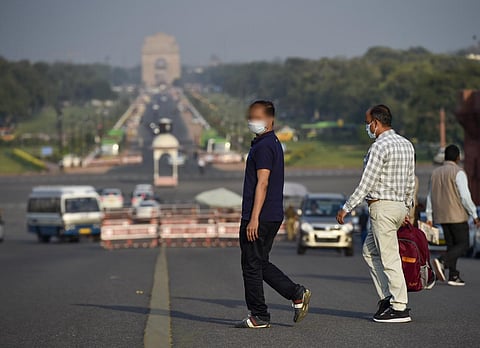
- News
- Columns
- Interviews
- Law Firms
- Apprentice Lawyer
- Legal Jobs
- हिंदी
- ಕನ್ನಡ

By no stretch of imagination can it be said that the COVID-19 dragon has been tamed much less slain, Delhi High Court on Monday remarked in view of the rising cases in the national capital. (Rakesh Malhotra vs GNCTD)